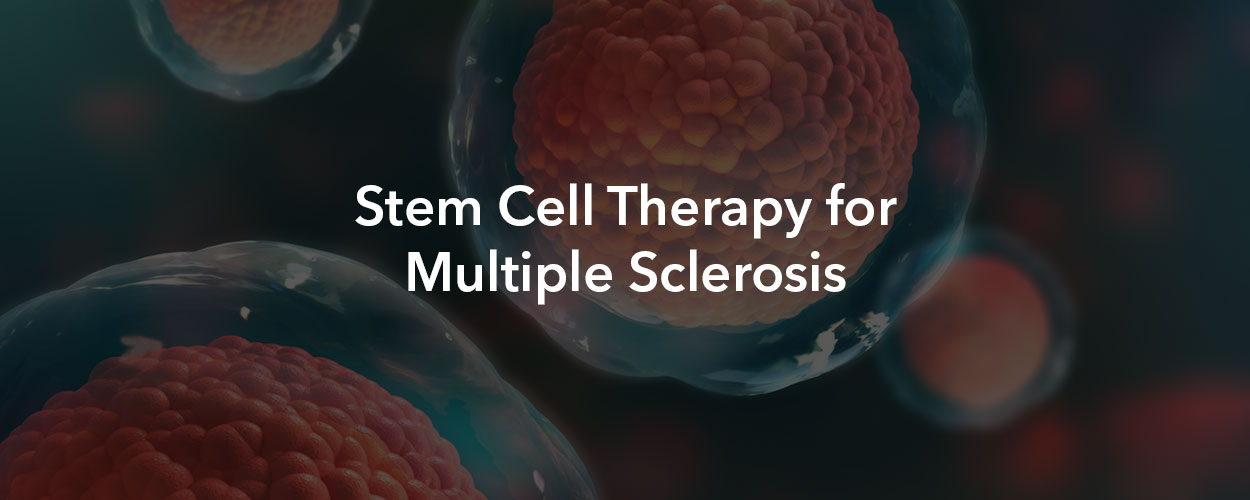An Unbiased View of Regenerative Medicine For Multiple Sclerosis
Table of ContentsAll about Regenerative Medicine For Multiple SclerosisAll about Regenerative Medicine For Multiple Sclerosis3 Simple Techniques For Regenerative Medicine For Multiple SclerosisRegenerative Medicine For Multiple Sclerosis for DummiesHow Regenerative Medicine For Multiple Sclerosis can Save You Time, Stress, and Money.Some Known Questions About Regenerative Medicine For Multiple Sclerosis.10 Simple Techniques For Regenerative Medicine For Multiple Sclerosis
The mesenchymal stem cells transplanted during stem cell treatment can split and develop to form brand-new cells that can take the place of the harmed cells of the nervous cells. This may recover neurological features in patients with this condition. These advantages of stem cell therapy are additional sustained by the capability of MSCs to advertise recovery.Clients with multiple sclerosis are usually treated with mesenchymal stem cells. These are multipotent stem cells that have the ability to distinguish and mature to develop a variety of cell enters the body. As soon as transplanted, these stem cells can create to develop healthy afferent neuron thus supporting the regrowth of the damaged tissues of the nerve system.
Once transplanted, the stem cells move to areas of swelling or damage within the central nerves (CNS). They are naturally drawn in to the websites of injury where the immune system is attacking the myelin sheath, the protective covering of nerve fibers. The stem cells work by advertising the repair service and regeneration of harmed myelin, potentially recovering feature to influenced nerve cells.
Indicators on Regenerative Medicine For Multiple Sclerosis You Should Know
Stem Cell Research Study on MS The National Numerous Sclerosis Culture, along with other companies, is actively moneying and sustaining research study right into mesenchymal stem cell treatment for several sclerosis to discover their potential and improve treatment protocols. The goal is to establish much safer and extra effective methods to make use of stem cells in treating MS.
Rumored Buzz on Regenerative Medicine For Multiple Sclerosis
Here are below from testimonials of people Swiss Medica clinic. The person traveled from Romania looking for treatment for MS after hearing positive comments regarding stem cell therapy for the condition.
Obtain a free online appointment to learn exactly how stem cells will certainly function for your case, and what are the period and expense of the therapy. Uccelli, A., Laroni, A., Brundin, L., Clanet, M., Fernandez, O., Nabavi, S. M. Regenerative Medicine for Multiple Sclerosis., Muraro, P. A., Oliveri, R. S., Radue, E. W., Sellner, J., Soelberg Sorensen, P., Sormani, M. P., Wuerfel, J. T., Battaglia, M
Stem cells are cells in the body that can mature into specialized right into that serve an offer functionDetails There are two main kinds of stem cells: embryonic stem cells and grown-up stem cells.
are located in some grown-up tissues and body organs consisting of the bone marrow, skin, blood, and mind. Grown-up stem cells are not as versatile as embryonic stem cells and are consequently a lot more limited in regards to the kinds of cells they develop into. The one-of-a-kind properties of stem cells give pledge for brand-new treatments that can slow/halt MS disease activity and repair cells damages in the main nervous system.
Our Regenerative Medicine For Multiple Sclerosis Diaries

The treatment involves accumulating stem cells from an individual's very own (autologous) bone marrow. The individual is after that treated with radiation treatment to deplete the body immune system and stem cells are reintroduced into the body where they mature into new, healthy and balanced immune cells - Regenerative Medicine for Multiple Sclerosis. Stem cells can be infused into the body in various means

In 2000, the MS Society of Canada and MS Scientific Research study Foundation funded a medical test involving HSC transplants, led by my sources Drs. Mark Freedman and Harry Atkins from the Ottawa Healthcare Facility Study Institute/University of Ottawa. The aHSC treatment readily available in Canada is a treatment that uses high-dose radiation treatment, also called conditioning.

Regenerative Medicine For Multiple Sclerosis Fundamentals Explained
Neural stem cells (NSC) are located in the brain and can develop into various kinds of brain cells including neurons, oligodendrocytes, and astrocytes. NSCs might serve to repair or shield the mind and regulate the body immune system. Early professional tests in non-human primates demonstrated that treatment with NSCs benefitted you can find out more the development of MS-like condition in pet models.
The outcomes from these safety and security studies are positive for future stem cell and regenerative medicine therapies in MS. Future professional trials (stage 2 and 3) with bigger numbers of individuals and controls are required to assess the effectiveness of this therapy for MS. As shown by the instances over, there is a large range of study occurring that will certainly supply extra answers regarding making use of stem cells to deal with MS.
Stem cell treatment is considered secure, yet, like any medical treatment, it lugs some risks, such as short-term swelling or pain at the injection website. Serious side impacts are uncommon when carried out by certified specialists.
The 30-Second Trick For Regenerative Medicine For Multiple Sclerosis
Numerous sclerosis (MS) is a chronic illness of the central nerve system that impacts the brain and spine. It is characterized by the destruction of myelin, a material that covers nerve fibers, leading to interruptions in communication between the brain and the rest of the body. Symptoms can differ widely and include muscle weak point, vision troubles, imbalance, and fatigue.
Multiple sclerosis is identified by the immune system mistakenly attacking the protective sheath (myelin) that covers nerve fibers, triggering interaction problems between the mind and the remainder of the body. The condition can bring about the deterioration or irreversible damages of nerves. Signs vary extensively among patients and can consist of fatigue, flexibility concerns, discomfort, and cognitive changes.